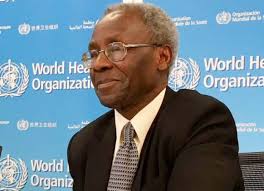- Agency Report
A Consultant Virologist, Prof. Oyewale Tomori, has described the U.S. intent to withdraw from the World Health Organisation (WHO) as an eye-opener, calling for efficient utilisation of African/Nigerian resources.
Tomori, also the Chairman of Biovaccines Nig. Ltd., made the assertion in an interview with the News Agency of Nigeria (NAN) in Lagos on Thursday.
Tomori decried that U.S. withdrawal would obviously
affect funding of WHO, urging the organisation to see it as an opportunity to grow stronger.
NAN reports that the newly inaugurated President of the U.S., Donald Trump, had signed an executive order declaring the country’s intent to withdraw from WHO, citing its alleged mismanagement of global health crises, including the COVID-19 pandemic.
Trump also highlighted financial disparities, condemning the “unfairly onerous payments” demanded of the U.S. compared to other nations.
The virologist said the development should teach Africa and Nigeria in particular a lesson – not to depend on the so called big/developed countries.
According to him, African countries should take advantage of the development to strengthen themselves and use their resources wisely.
He noted that if the resources were to be developed and used wisely, there won’t be time for African to go back begging or depending on other countries.
“God created all of us equally, so, African countries should not see themselves as being resource constraint/limited.
“To me, the U.S. intention to exit WHO is an eye-opener and we should take advantage of it to strengthen and develop ourselves.
“I think it is enough time we begin to look inward to see what we can do for ourselves. That’s why we need to strengthen our resources.
“Yes, WHO may persuade Trump to reconsider their intention; but we cannot guarantee what will happen if Trump leaves the U.S. government after four years.
“What if the next person to come in after Trump will be worse?
“So, we should learn to strengthen ourselves and use our resources judiciously,” Tomori said.
Tomori decried that Monkeypox was declared ‘a global health pandemic’ only after it evaded Europe.
According to him, Monkeypox has been in Africa for over 50 years and nobody said anything.
“Africa has been living with Monkeypox for over 50 years and nothing happened, but the moment it entered Europe, it was declared ‘a global health pandemic/crisis’.
“So, I think is high time Africa began to develop and strengthen itself, while using its resources wisely in order not to depend on anybody,” he said. NAN


